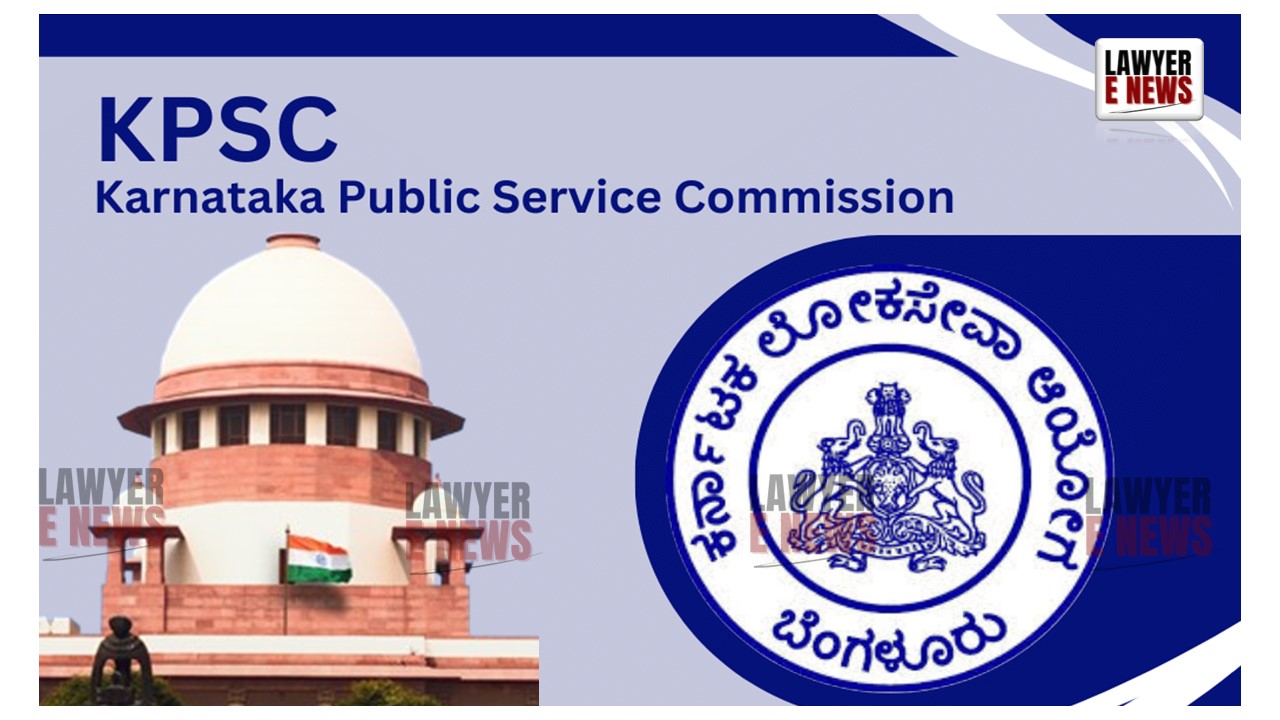-
by Admin
15 February 2026 5:35 AM



In an important judgement, Supreme Court stated that Public authorities must adhere to consistency and predictability in decision-making, particularly in recruitment processes affecting the lives and careers of candidates. On November 4, 2024, the Supreme Court of India upheld the Kerala High Court's ruling that barred the Kerala Public Service Commission (KPSC) from arbitrarily including candidates with Diploma in Computer Applications (DCA) or higher qualifications for Lower Division Clerk (LDC) posts at the Kerala Water Authority. The Court affirmed that only candidates with the specified Certificate in Data Entry and Office Automation, or a certificate from an equivalent institution approved by the government, met the qualifications prescribed in the 2012 notification. The Supreme Court criticized KPSC's inconsistent stance, highlighting the principles of fairness, consistency, and transparency in recruitment by public authorities.
The dispute originated in 2012 when KPSC issued a recruitment notification for LDC posts, requiring a degree and a Certificate in Data Entry and Office Automation (120 hours) from specified institutions or equivalent government-approved institutions. Shebin A.S., a candidate with a DCA qualification, initially challenged this qualification criterion, leading the High Court to direct KPSC to reconsider the notification. KPSC maintained that the DCA was not an eligible qualification for the LDC post. However, despite prevailing in the High Court on appeal, KPSC later included DCA candidates in its ranked list, prompting qualified candidates with the specified certificate to contest the list. A single judge and, subsequently, a Division Bench of the Kerala High Court, ruled in favor of the certified candidates, holding that KPSC's inconsistent stance violated established qualifications.
The Supreme Court analyzed whether KPSC's decision to alter its stand on the qualifications mid-process violated principles of fairness and consistency, particularly under Rule 10(a)(ii) of the Kerala State and Subordinate Service Rules, 1958, and the Rules of 2011 for the Kerala Water Authority.
The Court noted that the 2011 Rules for the Kerala Water Authority specifically limited eligibility to candidates with the designated Certificate in Data Entry and Office Automation, without extending to equivalent qualifications. The Court observed that KPSC's initial stance rejecting DCA as an equivalent qualification aligned with these rules, and its later inclusion of DCA candidates lacked a factual or regulatory basis.
The Court referred to Sheo Shyam v. State of U.P. and Sivanandan C.T. v. High Court of Kerala, emphasizing that “the discretion available with public authorities is confined within clearly defined limits,” and erratic changes in decision-making undermine the rule of law. Public bodies like KPSC are mandated to ensure “consistency and predictability” to uphold fairness, particularly in high-stakes recruitment that affects numerous candidates.
The Supreme Court found that KPSC's alteration of eligibility criteria without sufficient inquiry into the educational equivalence of DCA qualifications disregarded the legitimate expectations of candidates who met the prescribed qualifications. The judgment asserted that KPSC's deviation, “without a foundational inquiry” into the rigor and relevance of DCA courses compared to the specified certificate, led to arbitrary decision-making.
Citing the estoppel principle from Ajith K v. Aneesh K.S., the Court held that KPSC was bound by its initial stand against the inclusion of DCA candidates. The Court found that permitting such inconsistent stances could erode trust in public processes, adding, “an inter-party judgment, even if erroneous, binds the parties thereto.”
The Supreme Court dismissed the appeals, upholding the Kerala High Court’s decision that only candidates with the specified qualification were eligible for LDC posts in the Kerala Water Authority. The Court warned KPSC against “trifling with the lives, hopes, and aspirations of candidates,” reiterating that public authorities are expected to act with high standards of transparency and probity.
Date of Decision: November 4, 2024
Anoop M. and others v. Gireeshkumar T.M. and others
